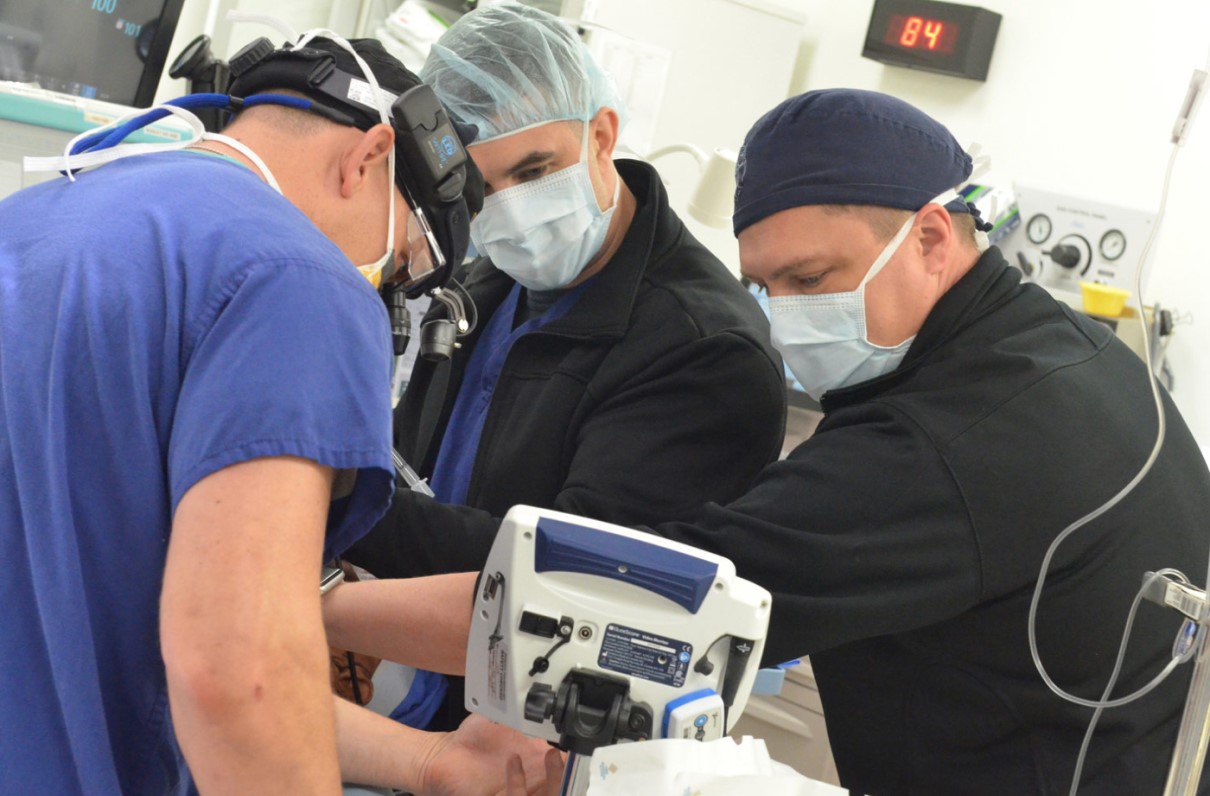DoD’s Office of the Inspector General (IG) recently released a report evaluating the challenges encountered by staff working at DoD military treatment facilities (MTFs) while responding to the COVID-19 pandemic.
MOAA believes some of the personnel issues reported to the IG have implications for proposed reductions to military medical capacity, including MTF restructuring directed by the FY 2017 National Defense Authorization Act (NDAA) and medical billet cuts proposed by the DoD in their FY 2020 and FY 2021 budget requests. DoD’s role in the whole-of-nation response to the pandemic, together with flux in the civilian health care market due to COVID-19 impacts, demands all cuts to military medicine be reconsidered.
[TAKE ACTION: Ask Your Lawmaker to Stop Cuts to Military Medicine]
Among the report’s findings:
- Provider deployments can leave MTFs understaffed and/or without specialties needed to perform the core medical mission.
- MTFs face inflexibility when using contract personnel due to contract limitations on working hours and requirements to remain in the specialty for which they were hired.
- MTFs experienced difficulties hiring contracted personnel during COVID-19 because they were competing with the local hospitals for the same medical personnel.
- Some DoD civilian staff were unavailable because staff position descriptions did not have “mission-essential” designations, and some were on extended administrative or “weather and safety” leave during COVID-19.
The IG report also detailed MTF best practices and mitigation strategies for responding to COVID-19, including:
- Drive-through COVID-19 testing that allowed MTF personnel to reduce patient exposure to COVID-19, preventing further spread of the virus.
- Drive-through pharmacy services that eliminated large numbers of people congregating inside MTFs (Some MTFs are working with installation leadership to continue this practice and create a more permanent structure for drive-through pharmacies).
- Collaboration with on- and off-installation organizations within the local area to obtain PPE supplies.
- A variety of communication innovations to keep beneficiaries informed in a rapidly changing environment including special hotlines and social media platforms.
Consistent with the IG’s recommendation, the Assistant Secretary of Defense for Health Affairs has directed an after-action review (AAR) made up of representatives from across the MHS to identify lessons learned and prepare the MHS to enhance its support for the next major public health emergency. The IG will keep this recommendation open until they receive documentation to support the MHS COVID-19 AAR working group’s actions to establish milestones for each of the challenges identified.
Letter From Service Secretaries/Chiefs
After the IG’s field work concluded, an Aug. 5 memorandum from the service secretaries and service chiefs called for the return of all military hospitals and clinics already transferred to the Defense Health Agency (DHA) and suspension of any planned moves of personnel or resources.
According to the IG report, the Deputy Secretary of Defense issued a response to the memo on Sept. 3 reminding the services that Congress directed the MHS reform in law and stating that if facts and data supported an adjustment to the law, the DoD would prepare and submit a legislative proposal.
The Deputy Secretary of Defense also stated he would schedule follow-up meetings with each of the individuals who signed the memorandum so he could better understand their concerns, and he requested updates on the status of the MHS reform and an analysis of the effects the COVID-19 pandemic has had on the MTFs and medical manpower.
MOAA will adjust advocacy strategy as more information becomes available from DoD. In the meantime, MOAA continues to support Sections 715 and 716 in the House version of the FY 2021 NDAA that would halt military medical downsizing and require more robust analysis and mitigation planning by DoD together with increased congressional oversight. Show your support by sending a message to your legislator today.
Stay Informed
It’s more important than ever to make sure you’re in the know and your military benefits are protected.

